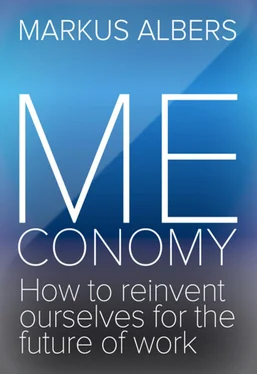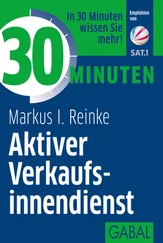On average, the number of independent professionals is increasing by five percent every year in Germany. In 1992, there were 514,000 of them; in 2007, that figure had already almost doubled to 954,000. Between 2006 and 2007 alone, the number of physicians and pharmacists increased by 7.6 percent, the number of lawyers, tax accountants, and auditors grew by 5.3 percent, the number of people working in technical and scientific professions (such as architects, engineers, and biologists) rose by 7 percent, and the number of people working in the cultural sector (such as journalists, actors, directors, and writers) increased by more than 6 percent.
Particularly the Creative Class gains more and more importance: According to the Federal Ministry of Economics and Technology, the cultural and creative industries grew in 2008 – despite the general economic trend. This was largely due to the economic input of small businesses. With 2.6 percent, the cultural and creative industries contributed more to the GDP than, e.g., the chemical industry (2.1 percent).
This trend towards more entrepreneurial spirit, courage, personal responsibility, creativity, and eagerness to experiment – i.e. towards the Meconomy – certainly isn’t very typical of Germany and has various structural, technological, psychological, and historical reasons. In the following, we will dip into the most important ones, looking at the core theses of two prominent observers of this development: Jeff Jarvis, communications expert and professor of journalism, and Seth Godin, entrepreneur, author, and marketing guru.
Learning from Google
Many things suggest that the world as we know it is undergoing a profound change: Time-tested business models are crumbling. Hierarchies are increasingly being replaced by collaborative, network-like structures. Communication within companies and within society isn’t entirely based on the top-down approach anymore – however, creating but a few bottom-up channels is not enough: In the long run, an irregular tangle of senders and receivers will replace the old media. People no longer want to perceive themselves as hollow consumers or marketing targets. Instead, they want to exert influence on products and innovations, as well as on the designs and functions of the things and tools that surround us.
Jeff Jarvis is known for his particularly merciless and prophetic analyses of this change. In the past, the 55-year-old worked as a media manager and created the famous US magazine Entertainment Weekly. Later on, he developed an online resource website and became a university professor. Jarvis lectures on the changing media landscape, proclaiming that the death of the newspaper is at hand, and writes highly successful blogs and books such as the bestseller “What Would Google Do?.”
In this book, he describes what would happen if other industries operated according to the rules of the search engine giant. To Jarvis, the above-described changes can be summarized in a short guiding principle that he gives the (rather immodest) name “Jarvis’ First Law”: “Give the people control, and we will use it. Don’t, and you will lose us.” What does this mean in the Meconomy context?
The first thing you need is what Jarvis calls “Googlejuice”: Ensure that you are searchable via Google (or other search engines). At a minimum, you should put your curriculum vitae, a portfolio of your previous work, and information on your network of friends and colleagues online. Besides, your website shouldn’t rank fifth or tenth in the search results. If you google for “Markus Albers,” the first website you will find is mine – because I fought for it. And here is how you do it: Create links – both online and in the real world. The more things/products/contents you create and the more producers you are linked to, the more links will lead others to you, the easier it is to find you, and the more jobs/contacts/knowledge you will get.
Moreover, you need to be honest and authentic – or, as Google puts it in its corporate slogan: “Don’t be evil.” The more rapidly online interaction between market participants gains momentum, the less it pays off to act in an immoral, uncooperative, and exploitative way, as the cost of such actions increasingly outweighs the benefits. Jarvis: “When people can talk with, about, and around you, screwing them is no longer a valid business strategy.”
You have to position yourself in a distinct way. “Our online shadows become our identities,” says Jarvis. “To stand out from our crowd, we need distinct identities.” You have to become your own brand, an expert, someone who represents something. For this purpose, you don’t have to become a quantum physicist or an opera star. Being known for less grandiose things or being an expert within a small group of people works just as well: Just think of someone who always repairs the heaters of his neighbors, ex-teachers who show others how to work computers, people offering pottery courses or drum lessons, mothers arranging playgroups, or someone who is really good at organizing parties – all of them are experts. However, you should carefully consider whether you want to be known for your professional qualifications or for your passions. You might be able to separate both online identities from each other: professional banker on Xing, rock guitarist on MySpace. Happy people manage to combine both – which brings us to the last point.
Do things. A clerk who meticulously files documents won’t become famous for that – neither will it add to his profile as an expert or to a portfolio that distinguishes him from others. We don’t know which documents Franz Kafka worked on as an insurance clerk, but we know his novels, short stories, and letters. Fortunately, standard processes are increasingly being automated or outsourced today. This doesn’t mean that all of us should become novelists now. However, it is certainly legitimate to ask: What achievements or what “body of work” would you like to look back on at the end of your life? “The internet doesn’t make us more creative,” writes Jarvis. “Instead, it enables what we create to be seen, heard, and used. It enables every creator to find a public, the public he or she merits.” Before we move on to this last aspect, I want to make clear that “creating” does not exclusively refer to arts, music, or dancing. Setting up a business, delivering engineering services, or imparting knowledge to others can be highly creative processes. It doesn’t matter how “valuable” a product or an idea is – what matters is that you create it.
Become the Leader of Your Own Tribe
Seth Godin is an advocate of this new way of thinking. The marketing expert, entrepreneur, and book author belongs to the few who are able to pinpoint what exactly is different about the new economic order that I refer to as the Meconomy in this book. In 2009, Godin coined the term “tribes” to describe the networks of relations between individuals. Tribes have always existed: The inhabitants of a small town formed a tribe, same as, e.g., athletes in Thuringia or the members of the Hamburg branch of the Social Democratic Party of Germany. In these old tribes, geography still played a crucial role.
The Internet has eliminated these geographic barriers. Today, an unlimited number of tribes exist parallel to each other, small and big ones, horizontal and vertical ones. All of us are members of many more tribes than in the past – tribes that we form with those who we work, travel, or shop with, who we discuss politics with, who we show our photos to, who like the same music, or who share cooking recipes with us. We have an ever-growing number of tools available to organize membership in these tribes and to connect with other members: Facebook and Xing, Twitter and Basecamp, e-mails and websites.
Читать дальше












